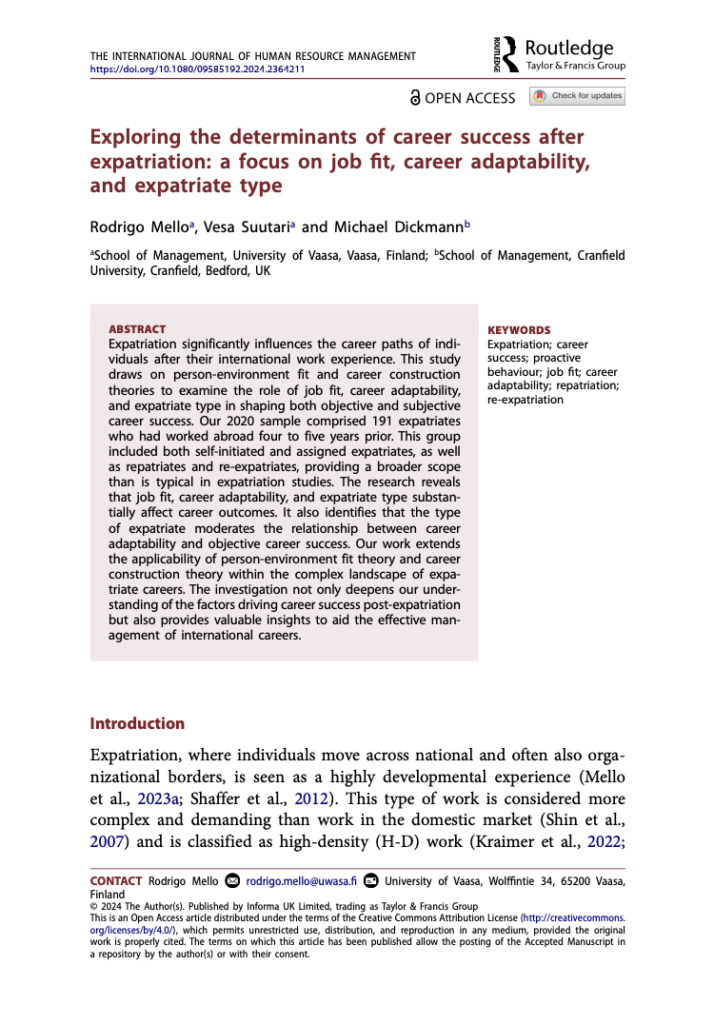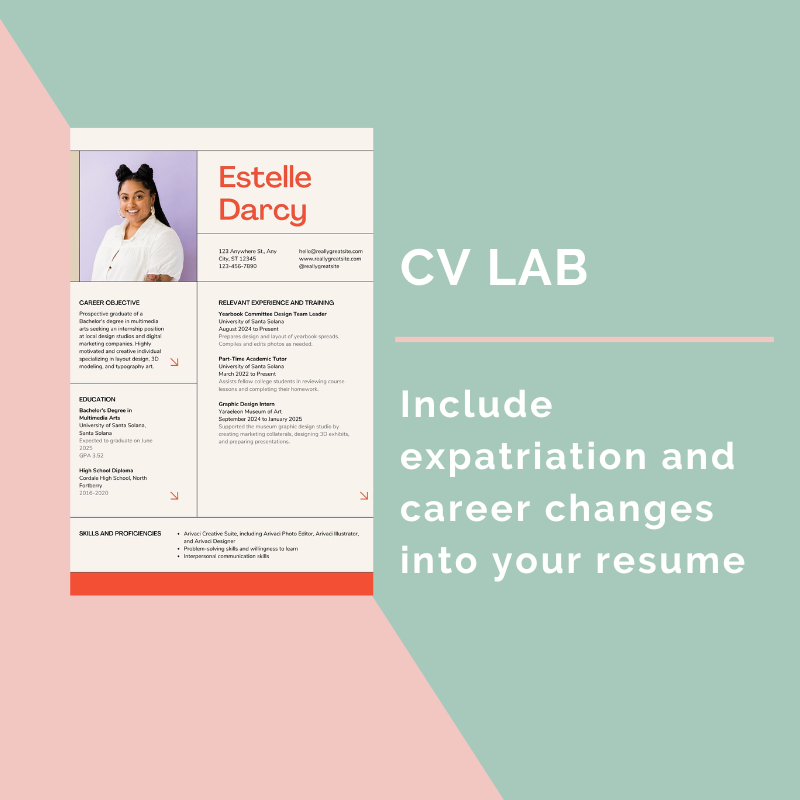
Career Success for Expats: Unlocking Career Success After Moving Abroad
Text by: Kate von Knobloch
Moving to a new country for work can be both challenging and rewarding. A recent academic study titled „Exploring the Determinants of Career Success After Expatriation: A Focus on Job Fit, Career Adaptability, and Expatriate Type“ sheds light on the factors that influence career success for expats. I have summarized some of the key learnings from this study in today’s post. Here’s what you need to know if you’re planning an international career or moving countries to advance your career.
This study examines how job fit, career adaptability, and expatriate type influence both objective and subjective career success for expatriates, revealing that these factors significantly affect career outcomes and extending the applicability of person-environment fit and career construction theories in the context of international careers.
The link of Job Fit and Career Success for Expats
One of the most critical factors for career success is job fit. Job fit refers to how well your skills and interests align with your job. This alignment significantly boosts both job satisfaction and career performance. Expats who find roles that match their competencies gained abroad are likely to perform better and feel more fulfilled. This is particularly important for those who have accumulated significant career capital through their international work experiences. One may ask that job fit is a given when you are moving your whole life and family abroad. However, often an international assignment is seen as such a huge opportunity that this part is often overlooked.
Career Adaptability: A Key to Career Success for Expats
Another crucial element is career adaptability, which is the ability to navigate career changes and challenges effectively. Expats who are adaptable can handle transitions smoothly, leading to higher career satisfaction. This involves being open to learning new skills, adjusting to different work cultures, and making proactive career decisions. Career adaptability enables expats to manage the complexities of their roles and the cultural nuances of their new environments. While this comes naturally to some, others must learn it through experience while living abroad. Regardless of where you start, your adaptability skills will likely strengthen over time. However, some expats find that they struggle with the constant need for adaptation, which can lead to early returns to their home country.
Different Types of Expats, Different Experiences
The study also highlights that different types of expats have different experiences and outcomes. Assigned Expatriates (AEs), who are sent abroad by their employers, often rely more on organizational support. In contrast, Self-Initiated Expatriates (SIEs), who move abroad on their own initiative, tend to exhibit more proactive career behaviors and report higher career satisfaction. Understanding your expatriate type can help you anticipate and manage your career development more effectively.

Navigating Career Transitions Post-Expatriation and it’s effect on career success
Career transitions post-expatriation present another layer of complexity. Repatriates, who return to their home country, and re-expatriates, who continue their international careers in new countries, face unique challenges and opportunities. The study found that career success can vary depending on whether expats return home or move to another country for work. Both groups must adapt to new job roles and environments, which can significantly influence their career satisfaction and progression.
The Role of Expat Partners and Career Success for Expats
The influential role of the expat partner was not covered in the study quoted in this article. However, it is an important dimension to consider. Numerous studies over the years have found a strong correlation between career success and the adaptability of the accompanying partner. The saying „Happy partner, happy life“ is especially relevant in global career planning for families. The challenges faced by the expat partner often contribute to expat failure and early returns. Recognizing this, many corporations have started to take it seriously, noting that many high-potential employees are hesitant to relocate abroad if their partner’s needs are not addressed. If you want to learn more about this topic, here are several articles I recommend:

Career Coaching for Expats
Understanding these factors can help expats better navigate their international careers. Regularly assessing job fit, building career adaptability, and recognizing the unique challenges associated with different expatriate types are crucial steps toward achieving career success abroad.
Navigating a career as an expat can be complex, but you don’t have to do it alone. My coaching program is designed to support you in finding the right job fit, building your career adaptability, and understanding your unique expatriate experience. Whether you’re a corporate transferee or a self-initiated expatriate, I can help you unlock your potential and achieve career success abroad.
Ready to take the next step in your career journey? Contact me today to learn more about how my coaching program can support you in achieving your professional goals as an expat.
I hope you found this blog post helpful for your current situation. Let me know if I can be of any help! I offer the opportunity for free 1:1 discovery calls to discuss your situation and I also offer free monthly global coffee dates where women from all around the world meet to discuss their global lifestyle decisions. You can safe your spot here.











